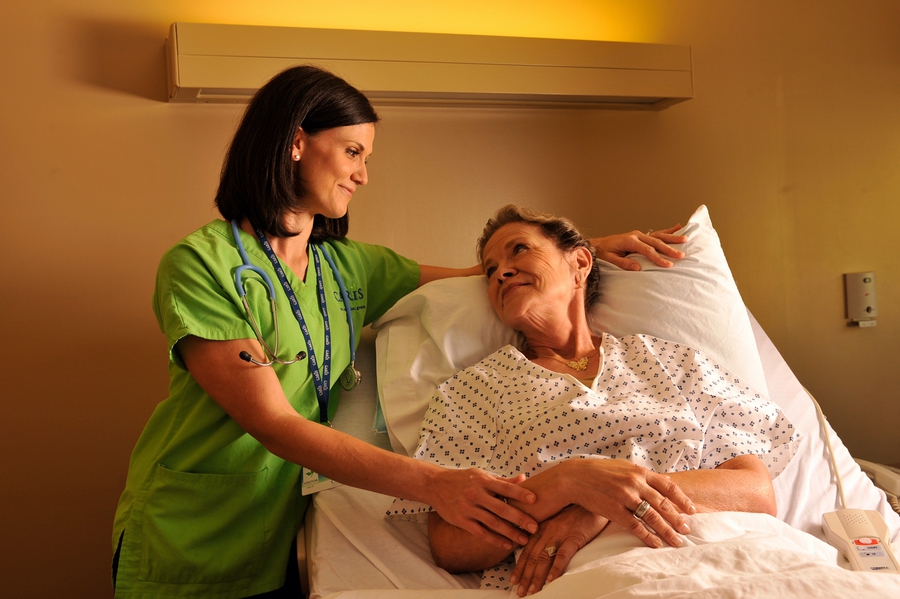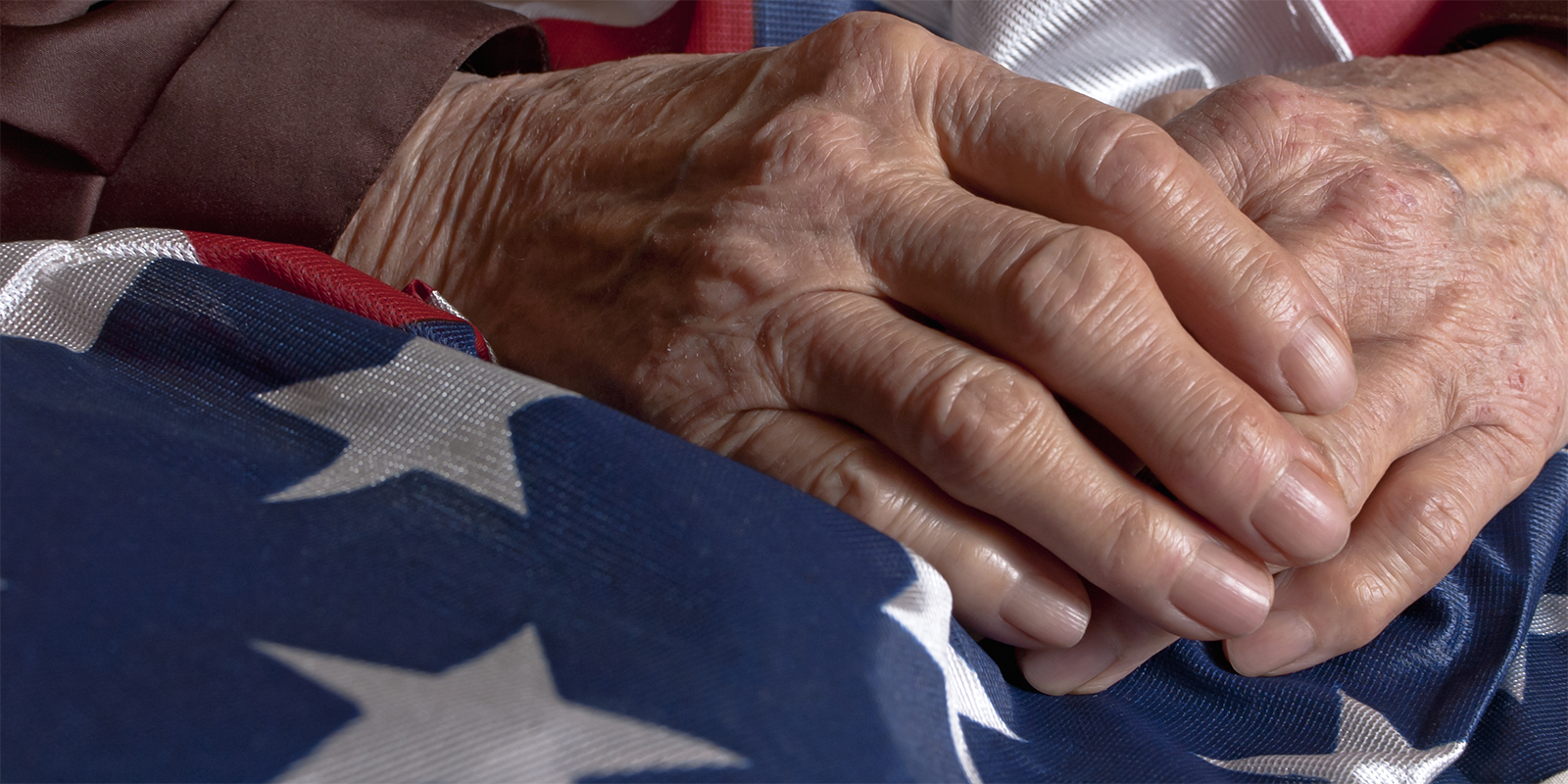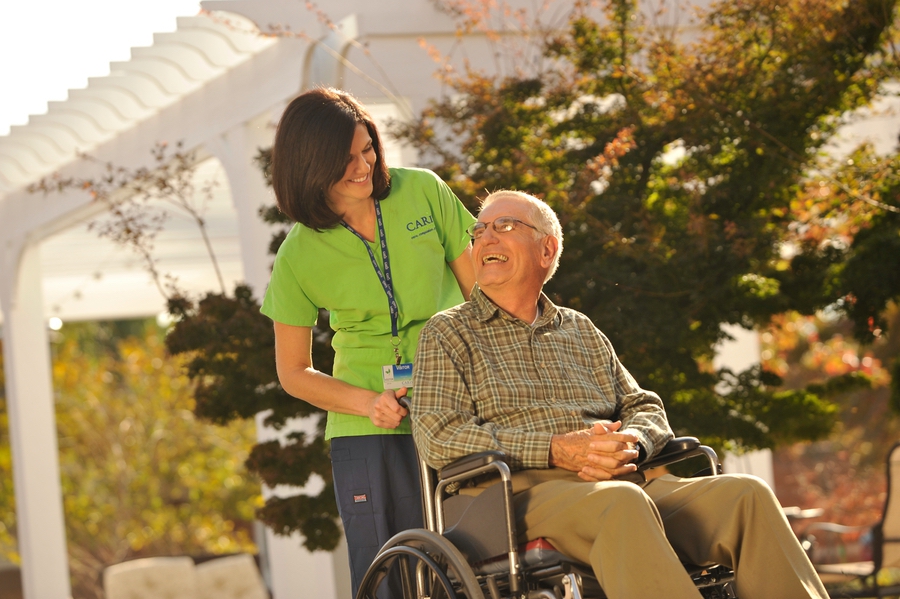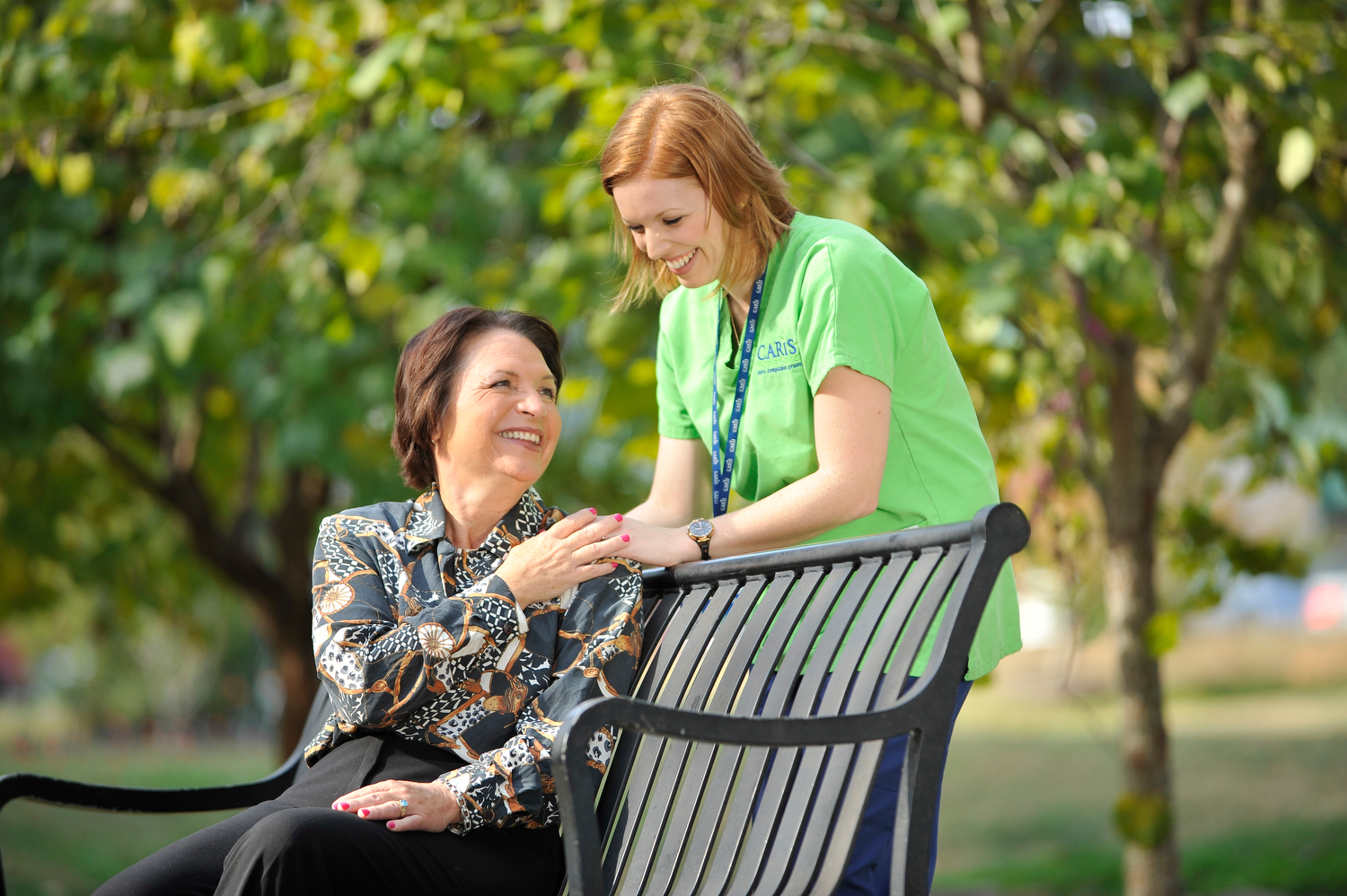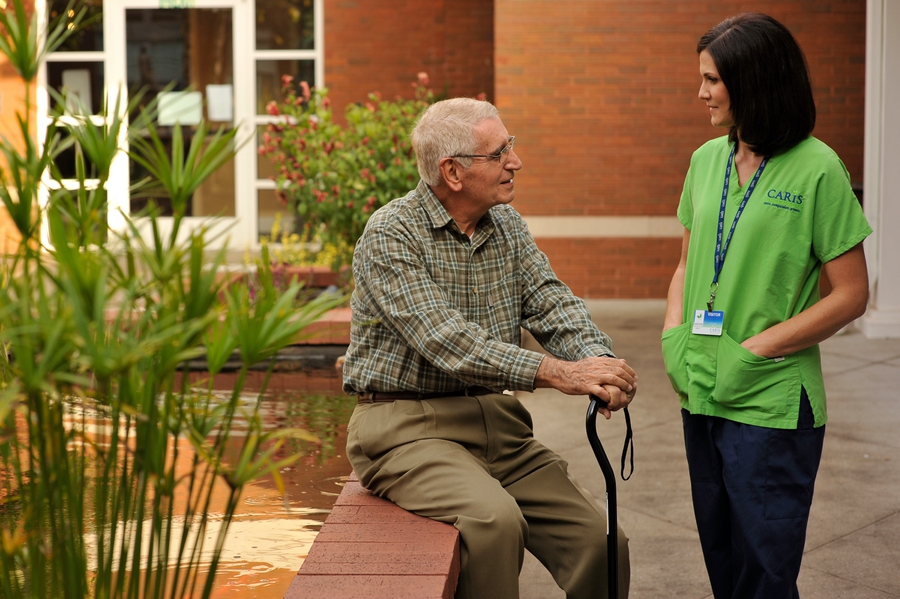Three most important things
Upon admission, we ask every patient: “What are the three most important things we need to know about you to provide excellent care?”
These answers shape how the caregiver team provides care to enhance the patient’s quality of life. Whether a patient prefers a certain snack or wants to be called by a childhood nickname, our team witnesses how these small gestures leave memorable impressions on our patients and families.

A Patient Story
Our patients are often confined to their homes, and just being outside in the fresh air can make all the difference. One patient cared for by the Lenoir City team shared that sitting out on his porch was one of his Three Most Important Things.
He enjoys sitting outside with his wife watching the birds, feeding the squirrels, and drinking his afternoon cup of coffee. When feeling well, he can still mow his yard using his riding lawnmower. This act of independence is important to him.
At a recent visit, the patient shared that his yard was full of large sticks and branches from storms this past year. Weeds had grown up around the trees in his yard and left him unable to mow and enjoy the view from his porch.
Hearing this, the Caris social worker enlisted the help of a volunteer and went to work. They spent the afternoon clearing the branches and weeds. Once the work was complete, the patient came outside to express his appreciation to the Lenoir City team.
He is looking forward to mowing and enjoying the view from his porch in the spring days to come.
Sometimes it is the simplest tasks that honor our patients by allowing them to maintain dignity and independence in their final stage of life.

Carl's story
Every spring since he could remember, Carl had sown seeds in his backyard vegetable garden. An avid gardener, Carl took great pride every summer in providing fresh produce for his family. When asked to share his “Three Most Important Things,” Carl grew very sad as he talked about the garden he wouldn’t be well enough to manage that summer. He worried that it would be too much for his wife to maintain as well.
A Caris volunteer offered to plant the garden for him, but Carl decided it would be more depressing to be able to see his garden, but not be able to work in it. His huge garden would be a reminder of what he could no longer manage in his decline.
As his Caris volunteers talked further with him, he said what would really make him happy was to taste fresh homegrown produce that summer – especially tomatoes and peppers, his favorites.
The volunteer elicited the help of another volunteer and together they grew a small vegetable patch of hearty tomatoes and peppers. Each time he tasted the freshly picked produce, he was reminded, not of what he could no longer manage, but of the many years he had nourished his family from his own backyard.

Robert's story
One Caris patient came up with a most challenging, yet heartfelt request for one of his “Three Most Important Things.” His son had joined the military and Robert had not seen or heard from him in five years. The last time that he had heard from him, his son was headed to Iraq, so Robert did not even know if his son was alive. “Find my son so I can talk to him one more time,” he asked. With no information other than the son’s name, the patient’s request seemed daunting, but “service is a Caris tenet.”
The volunteer coordinator for his Caris team contacted every branch of the armed forces to find the son, but without a Social Security number she was told there was no guarantee he could be located.
Not one to give up, the Caris volunteer coordinator finally spoke to someone with the U.S. Army human resources department who did not want to give any information. She replied that neither she nor Caris needed any information, but asked that if they located the son to tell him his father was terminally ill and was trying to get in touch with him.
Two weeks later, the patient answered a knock on the door to find his son standing on the doorstep. One of the volunteer coordinator’s emails or calls had initiated the trail of events that brought him there.
His son is in a special unit of the U.S. Army stationed in California and is in and out of Iraq frequently. He happened to be in the United States briefly before returning to Iraq, when word reached him about his father.
The visit was short but the patient, in tears, received the comfort of knowing his son was alive and was able to see that he was doing well. During the reunion, the patient learned that his son now had a son of his own.

Sarah's story
One of the Caris teams cared for a woman named Sarah. She was a 33-year-old female with ovarian cancer who also had cerebral palsy. She was the size of an 8-year-old, with the cognitive ability of a 3-year-old. She also had a personality that brightened an entire room and a positive attitude that lifted everyone’s spirit.
She had a loving family, and her parents often took her to the beach in the summer. This was her favorite thing to do. Her parent’s last wish for her was to take her to the beach once more before she passed away.
The Caris nurse, who knew that this patient probably wouldn’t live until summer, just happened to be planning a trip to Florida for Christmas. During her time at the beach, the nurse gathered sand, ocean water and seashells to bring to Sarah and her family.
Sarah passed away in January, long before the planned visit to the beach in the summer, but not before she put her feet in the sand and seawater one more time.
Pediatric Hospice
A child’s life should be filled with the highest-level of love, comfort and care. Pediatric patients and their families face a situation that requires the utmost level of compassion from a hospice care provider.


